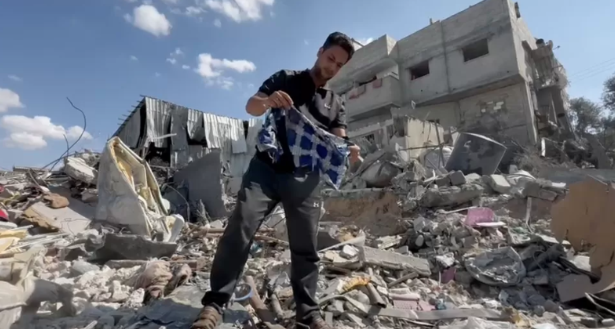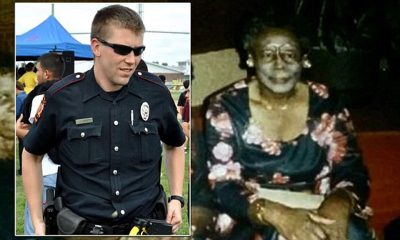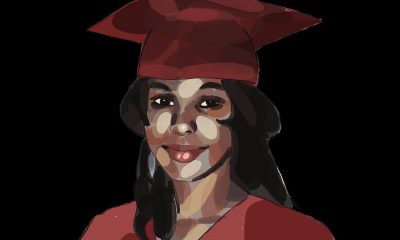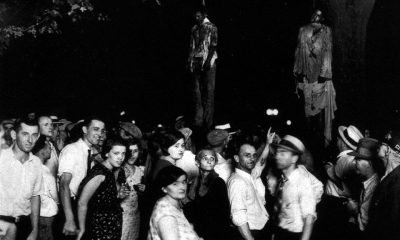Israel
Israel War Tragedy: A Gaza Father’s Dream Destroyed

The shadows of the Israel War loom large over the Gaza Strip, where the debris-laden alleys of a community once vibrant with the echoes of children’s laughter now stand silent. In the wake of destruction, Khalil Khader’s home, a symbol of personal and collective loss, merges with the desolation that defines this enclave. As a computer engineer at Al-Najjar hospital, Khader’s life is a stark reminder of the relentless cycle of devastation and the stifled aspirations of those caught in the crossfire. This narrative digs deep into the heart of human resilience amid the ruin, posing the critical question: What futures can be forged from the ruins left by the relentless churn of war?
The story of the Khader household is a single thread in the broader tapestry of Gaza’s history, a land where the laughter of children has too often been silenced by the roar of jets overhead. Khalil, a man of thirty-six, whose days were spent toggling between the technicalities of his profession and the nurturing of his young brood, stands as a solemn witness to Gaza’s relentless suffering. His lineage, carved deep into the city’s fabric, has been abruptly truncated.
One cannot traverse the present debris of Khalil’s world without stumbling upon the shadows of conflicts past. Gaza, measuring a mere 365 square kilometers, has been the stage for a historical drama that has stretched over decades, if not centuries. Khalil’s own recollections of 2014, when the tremors of nearby bombardments threatened the life of his unborn child, mingle with the echoes of generations that have known the fear of an uncertain future.
In the soft glow of a fading day, Khalil’s world was cleaved into the before and the after. On October 20, as night gathered its cloak around his village, a missile—blind in its lethal purpose—plunged from the sky. It was a harbinger of doom that chose Khalil’s family, snuffing out eleven lives in one fell swoop. His four children, his siblings, his father—seasoned with the wisdom of his seventy years—his brother, his sister-in-law, and their young were all consumed by this indiscriminate arbitrator of fate.
The quiet that followed was deafening. Now, Khalil sits, a figure of untold agony, amidst the shards of his shattered life. His wife, swathed in bandages, is imprisoned by pain in a hospital bed, a macabre echo of their children’s laughter silenced forever. Khalil clutches at what remains: a small, bright toy, a silent drum, and the blue pajamas belonging to his youngest, Rosa, now never to be worn again.
These poignant relics, heavy with the unbearable weight of memory, are all that remain. Khalil embodies a resilience so profound it is almost holy, a testament to the enduring human spirit. Around him, the community rallies, their actions painting a landscape of communal support in the face of unspeakable loss. Here is a resilience forged not in the absence of despair, but in its very teeth.
One must probe beyond the façade of numbers and casualty lists to grasp the full weight of such loss. In Gaza, each life taken is a narrative interrupted, a future extinguished. The aspirations Khalil held for his offspring – Ibrahim’s potential as a healer, Amal’s creative spirit, Kinan’s infectious joy, and Rosa’s untapped promise – represent the universal dreams of parents turned into a communal requiem.
This chronicle of destruction defies the sterile neutrality of official statements and international discourse. Khalil’s desolation is a stark counter-narrative to any rhetoric that diminishes the personal dimensions of warfare. The habitual character of conflict in Gaza does not, and should not, inure us to the acute individual tragedies that compound to form its collective heartbreak.
As we navigate the remnants of Khalil’s abode, the stark imagery of desolation serves as a profound narrative. The dichotomy of a brightly colored fabric amid the grey expanse of destruction, the eerie silence where once the laughter of his children echoed – these are the visceral details that convey the depth of the human tragedy unfurling in Gaza.
In the aftermath, as the world’s attention inevitably shifts, Khalil’s story endures as a somber reflection on the fragility of life in the face of conflict. The implications of this tragedy ripple far beyond the immediate moment, inviting us to ponder the future of a land and its people, perpetually caught in the crosshairs of geopolitical strife.
What remains for Khalil is the resolute spirit of a father, and a question that hangs heavy in the air: How many more dreams will crumble beneath the relentless march of war? As Khalil stands amidst the ruins, a father forever, his unwavering gaze upon the horizon is a silent plea for the dawn of a day when children’s pajamas will only ever signify slumber, not sorrow.

-

 States2 weeks ago
States2 weeks agoPearlie Golden 93-Year-Old Black Woman Shot By Texas Cop
-

 States2 weeks ago
States2 weeks agoTragedy Unveils Racial Tensions Tarika Wilson Story
-

 States2 weeks ago
States2 weeks agoLayers Of Racial Tension The Mario Woods Tragedy And San Francisco Path To Justice
-

 States2 weeks ago
States2 weeks agoLynching Of Thomas Shipp Tragedy Of Racism Echoes Through History
-

 States2 weeks ago
States2 weeks agoThe Killing Of Terence Crutcher And The Fight For Racial Justice

















You must be logged in to post a comment Login